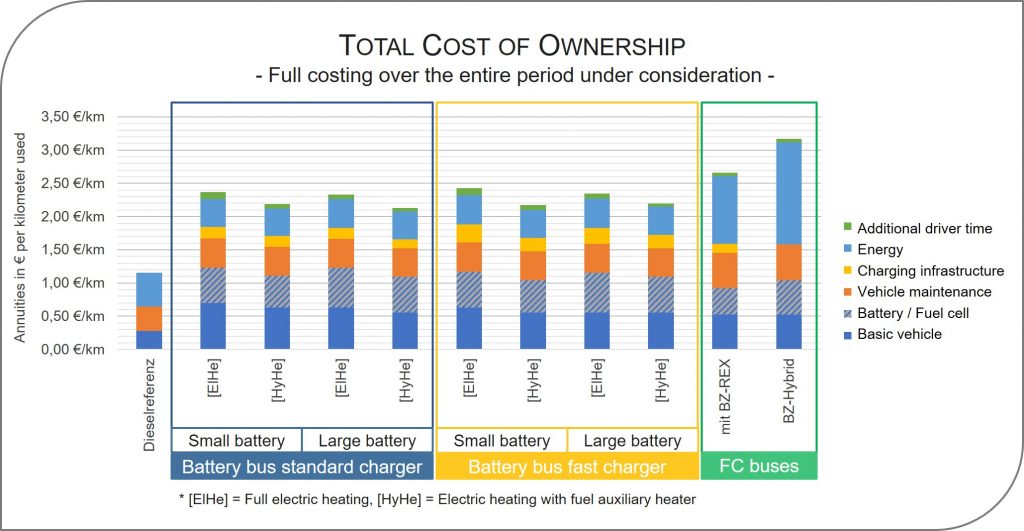2
We then find out to what extent the electrification of your bus fleet is technically possible.
After ebusplan has determined the basics, this is followed by the technical and operational analysis based on the scheduling data for all electric bus concepts. First, we analyze the technical feasibility of electrification without adjustments to the current operational planning (i.e., with unchanged rotations).
If you want to serve the entire mileage of your operation with electric buses, operational adjustments are necessary due to the currently still limited ranges. For this reason, ebusplan uses its own software tools, which are constantly being further developed, to determine an energy-based vehicle scheduling that is tailored to electric bus concepts. In this way, we can determine not only the technical feasibility, but also the operational effects, such as the vehicle (additional) demand and the additional empty kilometers due to underground trips to the depot for recharging.



